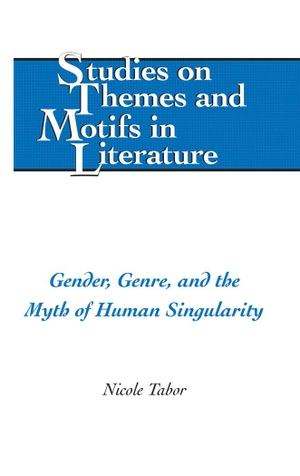Für statistische Zwecke und um bestmögliche Funktionalität zu bieten, speichert diese Website Cookies auf Ihrem Gerät. Das Speichern von Cookies kann in den Browser-Einstellungen deaktiviert werden. Wenn Sie die Website weiter nutzen, stimmen Sie der Verwendung von Cookies zu.
Cookie akzeptieren
Tabor
Gender, Genre, and the Myth of Human Singularity
- Peter Lang
- 2013
- Gebunden
- 172 Seiten
- ISBN 9781433117060
In literary works, the law of genre ¿ generic boundaries determined by institutions and conventions of art and literature ¿ reacts to threats of impurity. The three significant modernist works addressed herein by James Joyce (Ulysses), Virginia Woolf (Between the Acts), and Gertrude Stein (Doctor Faustus Lights the Lights) break time-honored gender and genre laws, thus challenging the discourses of power. This violation of laws creates a duality in which play/novel and female/male are intertwined. Women behave as men, men as women, plays act as novels, and so forth. In this way they challenge expectations about categorization: literary, social, and otherwise. Beginning with Joyce and continuing
Mehr
Weniger
zzgl. Versand
in Kürze